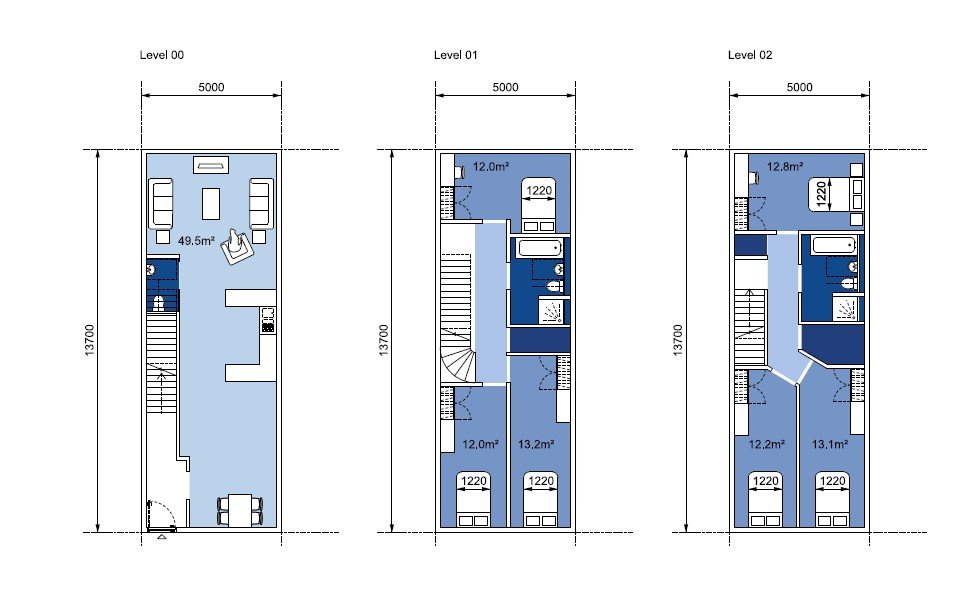
New Commonweal Funded LivShare Concept Launches
Led by Andy Redfearn, who previously created the Y:Cube Housing development for the YMCA, the concept seeks to use modular build technology to provide affordable shared housing for single people on low incomes
 This morning saw the eagerly anticipated launch of a new feasibility study examining the LivShare Concept. Funded by Commonweal Housing and developed by Andy Redfearn in consultation with architects Rogers Stirk Harbour + Partners, a full copy of the report can be viewed here.
This morning saw the eagerly anticipated launch of a new feasibility study examining the LivShare Concept. Funded by Commonweal Housing and developed by Andy Redfearn in consultation with architects Rogers Stirk Harbour + Partners, a full copy of the report can be viewed here.
LivShare is a new, flexible, low rent housing concept based on purpose built shared houses, designed to offer the best of communal living whilst at the same time creating high quality, safe private bedrooms. With a higher density townhouse model utilising efficient build systems, LivShare proposes a model offering rents that young people on lower incomes can afford whilst at the same time minimising the running costs of the properties. At the heart of the concept is the aim to reclaim the HMO as a tenure of choice for single people struggling to afford rents in the private sector.
With projects such as Peer Landlord advocating the benefits of shared housing, Commonweal’s support for LivShare stems from our belief that shared accommodation can provide stability and security for those on low incomes under the right circumstances. The concept additionally presents an opportunity to add to the overall housing stock in terms of new build, something Commonweal are eager to support.
Commenting on the report launch Ashley Horsey, CEO, Commonweal Housing said:
Commonweal has been committed for some years to the benefits of shared housing, using this approach in some of our projects including the Peer Landlord project. With the economic necessity of shared housing in the current housing market becoming increasingly apparent, Commonweal sees the new build and especially the ‘meanwhile use’ potential of this modular LivShare form of construction as being an interesting possible solution.
We are pleased that the specific principles of the indicative designs produced by RSH+P take on board key elements of the learning from our Peer Landlord pilot project in terms of the balance between shared and private space.
It is, therefore an option we feel merits more exposure, review, adoption and, as appropriate, adaptation so as to raise new housing production
By supporting this design and feasibility study, Commonweal hope to see an increased focus on the possibilities of new build shared housing which can be used by a range of operators to meet some of the needs of different cohorts. In short, we hope to see adoption of this concept, with the learning taken forward for new projects to help address the housing crisis facing young people on low incomes, and other cohorts too.
